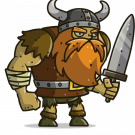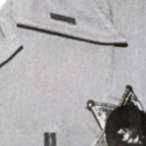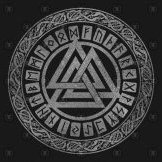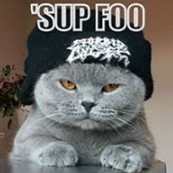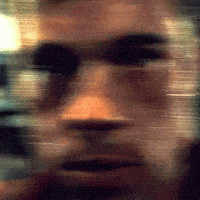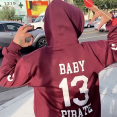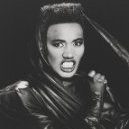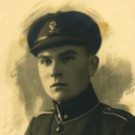Leaderboard
Popular Content
Showing content with the highest reputation on 09/28/2019 in all areas
-
Shout out to @Nyxl for the super creative Billboard design and participation in planning and carrying out this RP!11 points
-
What i would like to see is players being able to create their own rp and join existing factions. There is only a couple of factions currently that are big and have survived a long time mostly due to them being street gangs or being very tight knit group due to the rp they are doing. I saw people asking for an asian street gang well there was ADZ but people expressed interest in it but never stuck around long enough for the faction to take off. There is an asian faction which is Tianjin while it is more focused on organised crime but there are no defitinions of who can join and cannot join. Being part of the faction for couple of months I have seen people join and try to join only to abandon their characters after a week or two. People are not willing to be part of an organisation and create their own rp and use the faction itself as a "support" for their characters development. Everyone comes in and they expect drugs and guns and boat loads of cash to be given to them on day 1. We have plenty of factions on the server, we have black gangs, Asian faction which there was two essentially at one point even three couple of months ago. There are three Italian American crews, there are three Mc's there are two country "mobs" based in Sandy's Dirt Road and the Backwoods Crew. We have a Russian mob plenty of Mexican factions. FM should completely close the applications for at least a couple of months and force players to join existing factions and only allow completely original factions to be created instead of having repeats of the same ones. Everyone wants to start at the top and everyone wants to be their own boss from which you get these factions with 5 people which close down after 1-2 months. Instead of having fantasies about what faction people want, they should join existing factions and climb up the ranks and improve the existing factions through IC means by providing their own rp to the faction. Plenty of factions want people with their own ideas on how to improve and expand but from my experience 90% of the people come into these factions expecting everything to be given to them and if not given to them they just end up quitting.6 points
-
6 points
-
3 points
-
i'd just like to clarify the well known area around kevlar / bulletproof vests, the proof is a lie and it will never be 100% resistant to bullets, it slows down stuff like max3 said, it doesn't make you superman, it really fucking hurts regardless2 points
-
2 points
-
2 points
-
1 point
-
1 point
-
1 point
-
1 point
-
Username: NGC6543 Comment: Weird, I actually prefer this place to most others. Unlike the clubs that feel extremely impersonal and industrial, the Banjo felt pretty much at home and welcoming. You merely need to be a tiny bit friendly and you'll quickly get to know the people working there and the cornerstones. I'd rather spend my night there than at any club in LS, really. It's... a bit like Cluckin'bell VS. your local burger joint held by that cool dude. The Cluckin'bell will look fancier, and it will be be industrial food, same size for everyone, order quick, pay quick, byebye. The local joint, the cook will know exactly what you like and chat while the meat's heating. I don't mind the first once in a while, but given a choice I'll go for the latter.1 point
-
1 point
-
Hospital faction even if it’s just the ER and run by FD emts and the rest of the building is locked off. More server run and scripted business factions like the garbage men, city power and water actually fleshed out as proper factions like PD and FD.1 point
-
1 point
-
1 point
-
1 point
-
I know this, what I mean is, that we should limit what civ's can buy to at least licensed CCW or GC because otherwise it will be abused by gangs. They should be able to buy kevlar via a supplier illegally of course.1 point
-
1 point
-
1 point
-
1 point
-
It's true a wider variety of legal factions could be nice, but most often they're limited by what can be produced and sold, in the script. It's a difficulty I mentioned on another topic: There are a lot of RL deliverables that are marketed and sold, but that aren't very valuable (or aren't seen as valuable) on GTAW in general. This means a player-to-player economy on those services is doomed to failure, and it requires staff intervention to make sure the people are paid. Problem is whether the staff is willing to do that or not, which can vary wildly based on a lot of very unpredictable criteria. That would be pretty damn unusual, I have to admit I'd be curious to see that ? Having played with one of those, I can confirm it can be pretty fun and very, very weird. Requires a lot of IC/OOC separation of course, to accept that your character is being manipulated and is believing completely outlandish bullshit, but it can develop into pretty cool stuff ^^1 point
-
1 point
-
1 point
-
1 point
-
Known as ‘female impersonators,’ drag queens vary from homosexual cisgender men, to transgender individuals, to biological women and varying description of the meaning being a ‘drag queen’; an entertainer, female impersonator or a misconstrued narrative for the LGBT+ community? Varying between sexual orientations and gender identities, the colourful individuals claiming themselves as ‘drag queens’ are often seen performing in bars or entertaining to establish further attributes of the characterisation of one’s character. RuPaul, the creator and narrator behind ‘RuPaul’s Drag Race,’ is arguably the main reason for the outburst of garnering attention to modern-aged drag events and personalities. The show’s presence has brought visibility to the art form of drag, however, the show’s theme of broadening gender identity and expression has been contradicted by the comments RuPaul Charles himself has stated. RuPaul, identified as creating positive reinforcing shifts in mainstream media, has commented such statements during an interview targeted to potential transgender women being contestants; “Probably not. You can identify as a woman and say you’re transitioning, but it changes once you start changing your body. It takes on a different thing; it changes the whole concept of what we’re doing.” Despite the avoidance of previous transgender contestants and sub-sections of varying queens, RuPaul’s actions were concluded with a subtle apology in return. As stated prior, the drag community varies, between alternative styles to presence; meaning, RuPaul, although arguably the most known ‘drag queen,’ is unable to speak on behalf of a community that is individualistic and that advances the primary question further; how does one describe a ‘Drag Queen’? The art form of drag originated from Shakespearean times and for more so utilitarian purposes, originating in the seventeenth century during Shakespeare’s plays, in which solely men could partake in production due to the religious rites. Men would dress as women, to fill the void of lack of female presentation and to depict drag in its earliest form; with the word ‘drag’ being created from how the drag queens’ dresses would drag across the floor throughout the performance. Drag, however, began to become individualistic and modernised through the introduction of ‘vaudeville’ into American culture and audiences. Shakespeare's 'As You Like It' features a cross-dressing character, Rosalind, when she disguises herself as a persona named Ganymede. Vaudeville performances gained traction in the early twentieth century as performance acts, with combinations of comedy, musicality, and other genres to create its own alternative form of live entertainment for the masses. Female impersonation became intertwined with vaudeville performance, with female impersonation subtly becoming ingrained into gay culture throughout time, specifically during the United States’ Prohibition era, which abolished alcohol production and consumption from 1920 until 1933. During these periods, gay men, specifically, used underground clubs and speakeasies to express their identities and as an opportunity of entertainment. 'The Rocky Twins,' a duo that consisted presumably during the Vaudeville era. The popularisation of drag during the Prohibition era became known as ‘the Pansy Craze,’ which explored the ideals of sexuality, gender and thought process in such a strict-minded era. The Pansy Craze was prominently popular in underground environments, such as; New York, Los Angeles and San Francisco. From the midst of underground culture, gay culture continuously was policed in non-underground environments; meaning, gay individuals were not permitted to dance with each other, or to even be served alcohol in bars. New York’s Mafia and the Genovese family offered an outlet for the LGBT community and drag queens in particular; a safe environment of self-expression during repression of one’s entertainment. A member of the Genovese crime family purchased the Stonewall in Manhattan’s Greenwich Village, in which created an outlet for gay individuals in the area and ignited the series of riots in 1969, resulting in adaptation of such environment and the gay community gaining authority against oppression. Organisations, although treated in a marginalised manner, began to blossom during the time period. A drag queen known as ‘Flawless Sabrina,’ instigated pageants across the United States, similar to traditional beauty pageants. Sabrina’s involvement and influence during the period affected drag competitions and culture for decades to appear, and plausibly could be considered the reason for modernised popularity of drag queens. Another genre of drag known as ‘drag ball culture,’ has been theorised to originate during the early 1970s, in areas such as uptown Manhattan. The influence of such actions led to gender-bending performance, such as; Tim Curry in Rock Horror Picture Show, David Bowie’s stylistic choices, Pete Burns and Boy George. 'The Queen,' circa 1968. A pageant show started by Flawless Sabrina and is considered to be one of the first appearing Drag Queen pageant shows. An undeniable force of a drag queen in the modernisation of drag, however, is RuPaul. His local celebrity image fostered in New York’s City club scene, achieving the budding artist success from their single from 1993 named “Supermodel (You Better Work).” This led RuPaul the possibilities of becoming a spokesperson for MAC Cosmetics and multiple television shows, later conducting the opportunity of the reality competition series RuPaul’s Drag Race. Alternative drag shows, such as; Dragula, RuPaul’s Drag Race Thailand and UK and other mediums have evolved in the modern era from both RuPaul’s achievements and from drag queens from earlier adaptations of the definition of ‘drag.’ RuPaul's hit-single 'Supermodel (You Better Work)'. Beyond gaining visibility in culture, specifically mainstream media, drag queens have partaken in scientific research in the psychology of drag performers. A recent research is from Moncrieff & Lienard in 2017, which evolutionary psychology is posed to both drag queens and gay men. The primary question of the investigation process is, what possibly could drive individuals to the lifestyle that is known as drag? The inquiry was questioned in an evolutionary psychology formation, with ‘signalling theory’ explaining behaviours that do not deserve as an evolutionary advantage, commonly behaviours that are deemed to attract the attention of an audience. This theory relates in apposite with drag, serving as a description of behaviourism that occurs to gain status within a specific area, despite the potential costs or drawbacks from the behaviour. Moncrieff & Lienard communicate in the introduction to the theory that the gay communities in which drag was born ‘serve as a backdrop due to their exclusive and protected nature that was once necessary for the survival of these communities.’ In the study, Moncrieff & Lienard surveyed 133 gay men, alongside a control group of heterosexual men and women. The individuals partaking in the scientific research were inquired about their perceptions of drag queens, discovering that evolutionary costs were recognised as being the core cost to performing in drag across all sections of the group interviewed. A percentage of the study detailed on how the perception of individuals partaking in drag lessened the attraction from potential mates. The theory theorised that the reason for this was due to ‘overtly feminine attire and stereotypical behaviours,’ which are seen as less desirable traits among gay men. Those who perform in drag full-time are met with personal, financial and physical sacrifices from being included in the community. Furthermore, ‘signal theory’ clarifies that engaging in ‘costly behaviours’ for intentional targets implies that performers are not ‘faking’ the their drag-personified behaviours, but more so benefiting from being validated and appreciated for their efforts to entertain, whether that may or may not signal negative response. Moncrieff & Lineard’s takeaway from the study is the hypothesis that drag performers are motivated individuals, despite the potential costs, whether that may be signalling or performing to promote equality within the community. The exaggeration of behaviourism from the opposite gender can have potential costs due to it not being ‘the norm,’ however, a surge of underground or alternative drag queens are flourishing into main-stream media with the television series The Boulet Brothers’ ‘Dragula’. The show’s competition rivals RuPaul’s Drag Race; however, the contradicting themes are present and two separate agencies are beginning to formulate with the widening spectrum of performers developing in environments that are not so underground anymore. 'Dragula,' known as a rival show for RuPaul's Drag Race, which demonstrates an alternative and darker theme compared to RuPaul's easier conceptualised series. To finalise the article in a personalised manner, I want to specify on my own experience as a drag performer. As a transgender woman, who’s transitioning went from performance art to legitimacy, I began questioning my gender identity through the over saturated femininity that is ‘Drag.’ Growing up in an urban setting, especially in an orphanage, I was disallowed to have self-expression and to ‘go against the grain,’ or to go against societal norms. The costly hours of transitioning through makeup, even gluing down those prickly brows and other tedious acts left me feeling as I had for years; dysphoric. From the earliest stages of my transition, I overly feminised my conceptual views of "femininity" to fit into a narrative to ‘pass’ or to be attractive for the sole purpose of men potentially finding me ‘attractive.’ However, throughout the underground bar scene, I realised that the reason I felt exhaustion due to the fact that I’m no performer; I’m simply a woman that is discovering herself in a situation that is wrong, but yet right. The environment expressed sexuality, comfort, and self-identification; all of which I lacked but desired to express. The sisterhood of drag remains encouraging, determined and welcoming, particularly when I needed a form of escape. For that, although misunderstood by few, drag performers(and performers in their own right) remain deeply embedded in my heart. An earlier illustration of my drag persona known as 'Ms. Cummingham'.1 point
-
1 point
-
Because roleplaying as a senior ain't as interesting as a weed dealing Vin Diesel with a Dodge Charger, 2mil mansion and 8 ex wives.0 points
-
Trucker job should never ever rely fully on active players for income. Make points for NPC businesses which would buy the goods from truckers.0 points
-
0 points








